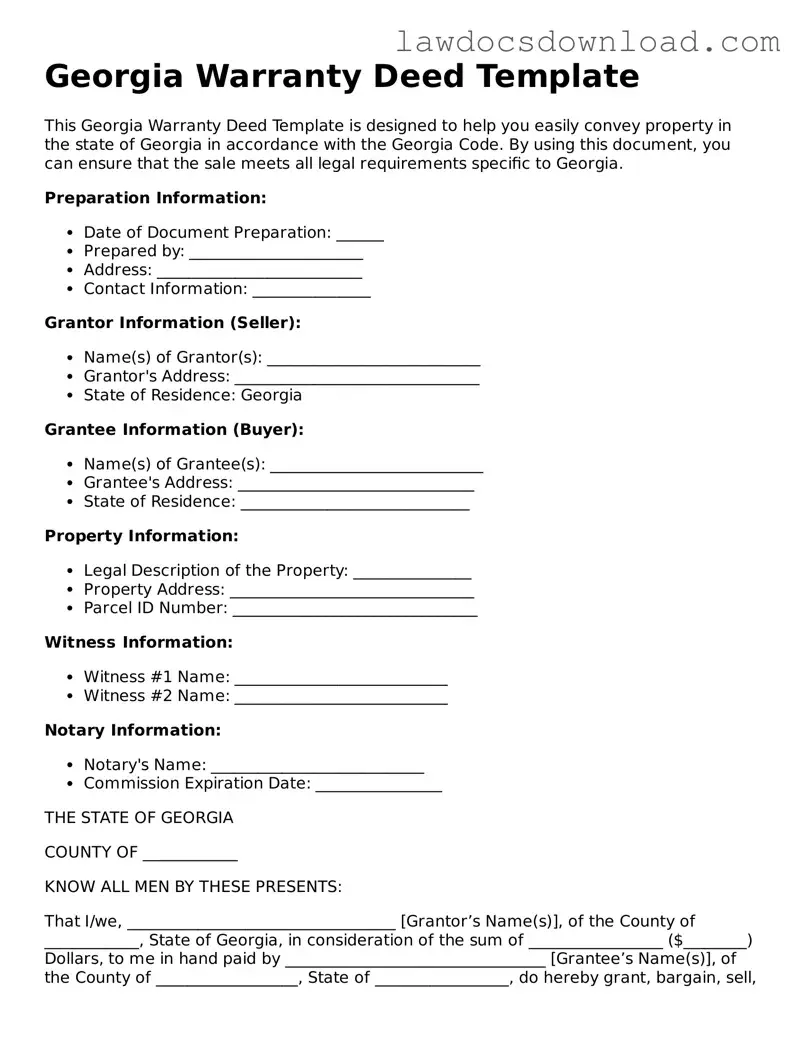Georgia Warranty Deed Template
This Georgia Warranty Deed Template is designed to help you easily convey property in the state of Georgia in accordance with the Georgia Code. By using this document, you can ensure that the sale meets all legal requirements specific to Georgia.
Preparation Information:
- Date of Document Preparation: ______
- Prepared by: ______________________
- Address: __________________________
- Contact Information: _______________
Grantor Information (Seller):
- Name(s) of Grantor(s): ___________________________
- Grantor's Address: _______________________________
- State of Residence: Georgia
Grantee Information (Buyer):
- Name(s) of Grantee(s): ___________________________
- Grantee's Address: ______________________________
- State of Residence: _____________________________
Property Information:
- Legal Description of the Property: _______________
- Property Address: _______________________________
- Parcel ID Number: _______________________________
Witness Information:
- Witness #1 Name: ___________________________
- Witness #2 Name: ___________________________
Notary Information:
- Notary's Name: ___________________________
- Commission Expiration Date: ________________
THE STATE OF GEORGIA
COUNTY OF ____________
KNOW ALL MEN BY THESE PRESENTS:
That I/we, __________________________________ [Grantor’s Name(s)], of the County of ____________, State of Georgia, in consideration of the sum of _________________ ($________) Dollars, to me in hand paid by _________________________________ [Grantee’s Name(s)], of the County of __________________, State of _________________, do hereby grant, bargain, sell, and convey unto the said party/parties of the second part, the following described property, to-wit:
Description of Property: _____________________________________________________
Together with all and singular the rights, members, and appurtenances thereof, to have and to hold the said premises unto the said Grantee(s), their heirs, and assigns, forever. And I/we do warrant and forever defend the right and title to the above-described property, against the claims of all persons whomsoever.
IN WITNESS WHEREOF, I/we have hereunto set my/our hand(s) and seal(s) this ____ day of ____________, 20__.
___________________________________
Signature of Grantor
___________________________________
Signature of Grantor
State of Georgia, County of ___________
Subscribed and sworn before me this ____ day of ____________, 20__.
_____________________________________
Notary Public
My commission expires: _______________
This document is not intended as legal advice. We recommend consulting a lawyer or a professional legal consultant to ensure compliance with state laws and regulations.

